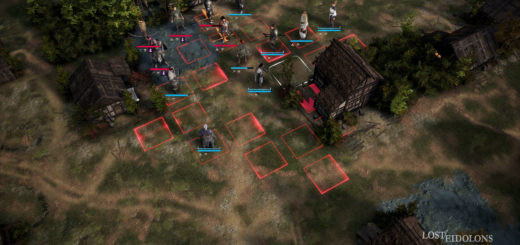Deus Ex Retroview
Fight the Power
Deus Ex represents one of the most enduring titles I’ve played, deserving of its reputation and worth investigating by anyone who is even slightly curious. Ion Storm developed something that looks like the first-person shooters of the time at a glance, but is incredibly rewarding when a little time is spent with the product. There is a learning curve if one is not accustomed to PC control schemes, but learning the way to play is absolutely worth the effort.
In the year 2052, J.C. Denton is an augmented human getting his first experience in the field. His initial assignment is to infiltrate a group of terrorists on Liberty Island in order to learn why they showed up there. Success in this task puts J.C. on the trail of stolen Ambrosia, the cure for an epidemic of Gray Death that has been spirited away by the terrorists. J.C.’s brother and fellow UNATCO agent Paul acts suspicious regarding these terrorists, and soon enough what appeared to be a straightforward attack on a terrorist group turns into something far more ominous.
Deus Ex has a large cast of characters, and all of them are at least interesting to behold. J.C.’s story is one with many players and factions, and the breathless ride ranks among the better science fiction of recent years. The future envisioned in this game is unlikely to transpire exactly as depicted, but nevertheless has eerie similarities to current events such as governmental intrusions upon privacy. Newspapers and books are scattered around to flesh out this fascinating dystopia, and the consistently strong script makes all of it intriguing to peruse.
Moving around the environments is done through a first person interface, but attempting to treat Deus Ex like a garden variety FPS will result in quick death. It is theoretically possible to use sheer firepower to crush everything in J.C.’s path, but this is actually tougher than most other means of progressing. Even on the Easy difficulty setting, J.C. will quickly fall if a spray of bullets hits his head, and once alerted the enemies are quick to end his life. The ability to save at any time is extremely helpful considering the number of things that can go wrong and result in a dead J.C. Once the enemy placement is known, progress tends to be much easier, but getting to that point will take quite a few abortive maneuvers.
Instead of breaking in like Arnold Schwarzenegger, J.C. is able to use any number of sneakier means to move around. In a crouched state J.C. makes no noise and is hard to see from a distance, allowing him to move around air ducts or back alleys without detection. All enemies have a movement pattern, and taking advantage of it will allow them to be brought down quickly and quietly. Patience is the player’s ally, and every environment has multiple ways of moving through it. Some of the time this demands a swim, and other times it requires going through a radiation zone, but there is never just one way of moving along.
The enemy AI is often questionable, and demonstrates one of the few ways Deus Ex has not aged well. While humans will instantly start shooting back if J.C. gets violent, they tend to take a few seconds out when he is initially glimpsed to make sure of what they’re seeing, and that time is usually sufficient to get into hiding. All opponents are also extremely blasé about seeing their fellows lying dead or unconscious, and even a fully alerted base will subside into inactivity after about thirty seconds of evading pursuit. Robots are more tenacious and immediately violent than most humans, but also are easy to fool or outmaneuver. The AI is nevertheless superbly suited for the environments in which these opponents reside, and finding just the right way to evade foes is immensely satisfying. It is possible to go through the game without killing any enemies except bosses, or by wading through a river of blood, with many options between those extremes.
All paths through the game will put J.C. in the path of mechanical obstructions in addition to standard organic opponents, and there are multiple ways of getting through these blockages also. Lockpicking doors and storage containers is a worthy goal, and hacking computer systems to shut down ever-present camera observation will also be quite useful, while a skilled hacker can even set enemy machines to attack their allies. There is a finite number of lockpicks and hacking multitools in the game though, and unless some scarce skill points are allocated to improving these areas of J.C.’s character, he will constantly have to carefully pick and choose which objects to go after. Of course the option of an explosive will often work wonders for opening a door, but this will also alert enemies in the neighborhood, and most demolition weapons are scarcer than the quieter methods to progress.
Skill points can go into eleven different disciplines though, and almost all of them are useful. A combat-oriented J.C. will need to distribute points into one or two of the five different weapon types, for the effect of training these disciplines will be immediately apparent and useful — trying to deal with enemies when no training in any kind of weapon has taken place is a recipe for disaster. Going into dangerous areas is made more tolerable by improving environmental hazard tolerance, while lockpicking and computer hacking also have skill sets that make them immensely faster and more effective. Exploration will also unearth numerous augmentation upgrades for J.C., which use his bio-energy to do such useful things as increase strength or replenish health. While some of the upgrades are more useful than others, the fact that none are mandatory ensures the player has plenty of choice about how to build the character.
Deus Ex‘s interface is by no means the most complicated around, but it will require some familiarization for anyone accustomed to console controls. As the action takes place in real time, hunting around on the keyboard for the correct key to deploy an augmentation or item when under fire is a recipe for death. Putting in the time is absolutely worth the investment however, and the interface is quick and efficient once the player is familiar with it.
While they look excellent compared to most console titles of 2000, the visuals in Deus Ex have suffered somewhat over the years. Dark areas tend to feature a horde of ugly brown or green polygons to mark their walls, and the same boxes and walls decorate each area. There is a good variety of enemies though, and their animation is smooth, while each new area manages to look distinct from the others. This is no longer a game that shows off PC graphics cards at the highest possible setting, but it has not been rendered ugly.
Deus Ex has an excellent soundtrack to accompany the action, one worthy of hearing outside the game’s environs, but the sound doesn’t stop there. This is a title where playing with the mute button on is a bad idea, as hearing the environment is critical to knowing what is happening. Enemies usually say something to warn J.C. if he’s been spotted, alarms need to be heard in order to get out of the way, and merely discerning the footfalls of a patrolling adversary is vital to knowing where to move. The voice acting is the one ingredient of the sound which is not top-tier, mostly because Ion Storm’s cast had to perform a great number of roles each. Much of the acting is still quite good, and the less-effective parts tend to be swept aside before too long.
While Deus Ex was ported to the PS2, that system’s inferior RAM capabilities make the plethora of loading times the developers did not design the game around a bad idea. Any computer nowadays should be able to run Deus Ex with no problems, and the game is most assuredly worth testing. I stumbled a bit at the beginning, dying repeatedly while I attempted to understand the interface. Soon enough I was in tune with my environment and addicted to its absorbing world, a reaction many others have had over the years, and more will doubtless experience in the future.


Meaningful choices
Immersive world
Fascinating narrative
Requires control orientation
Visuals aren't amazing








Recent Comments